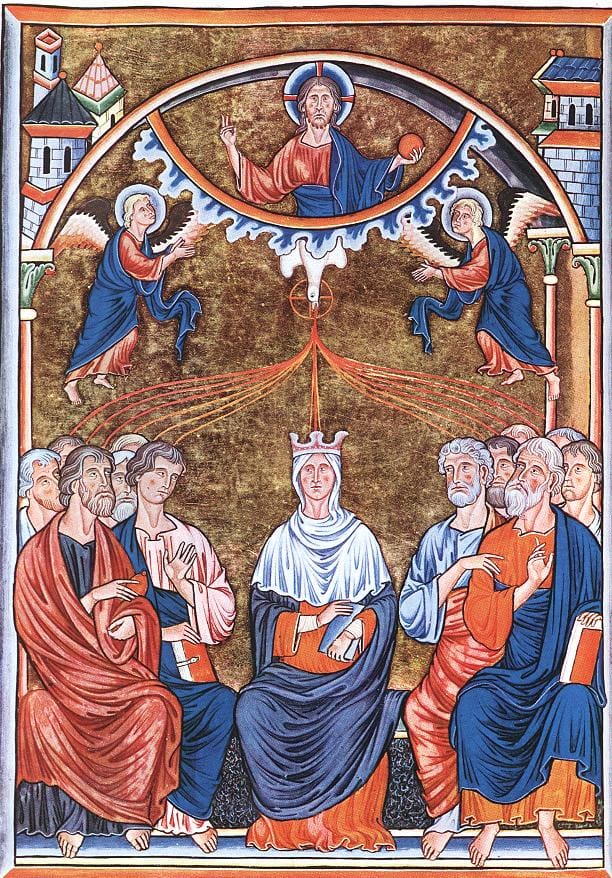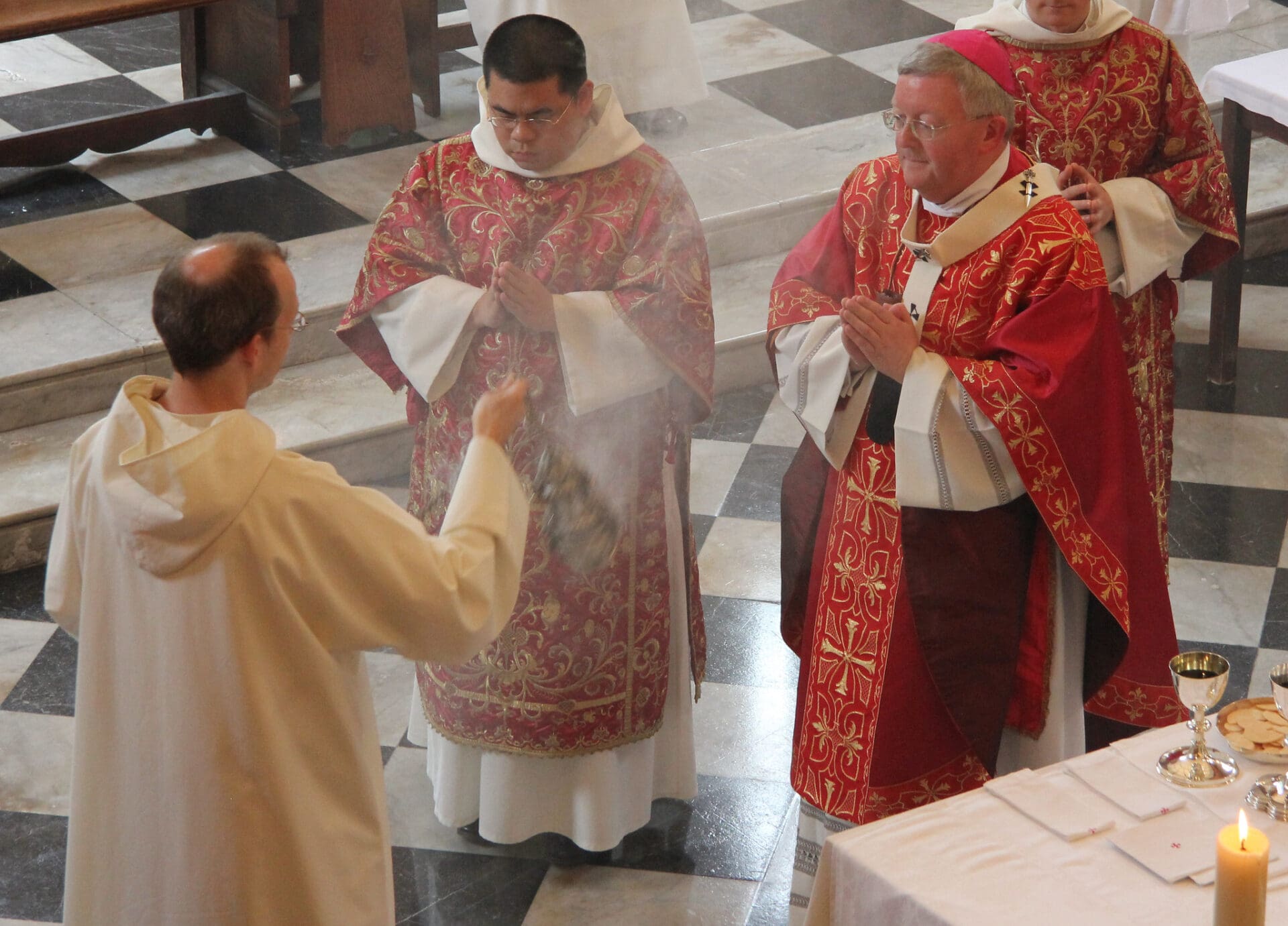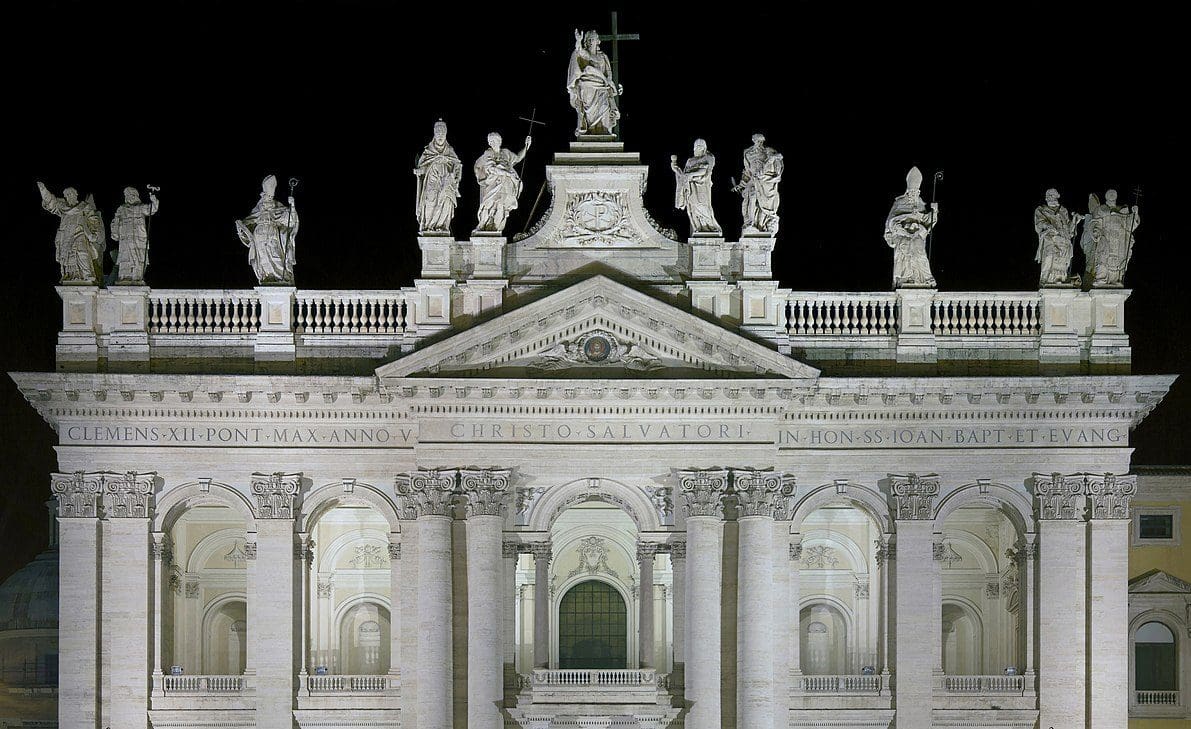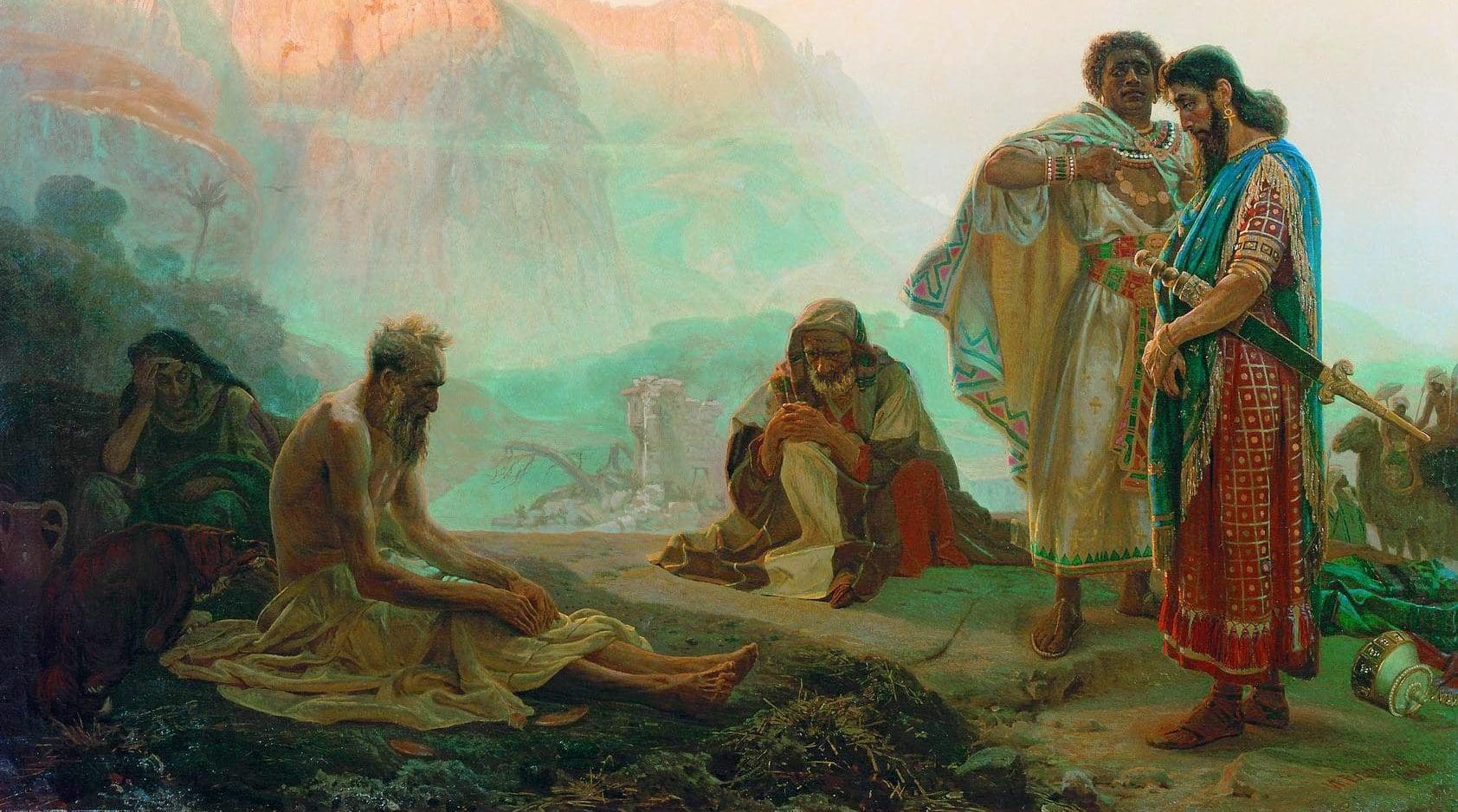The Spirit of the Lord has filled the whole world
and that which contains all things understands what is said, alleluia.
– Entrance Antiphon for Mass for Pentecost (Wis 1:7)
The Church celebrates Pentecost (so called because it is fifty days after Easter Day) as the day on which the Holy Spirit descended upon the apostles, gathered in an upper room with Mary, mother of Jesus, “as a mighty, rushing wind,” fulfilling Jesus’ promise when He “breathed on them,” as recorded in John’s Gospel (Chapter 20).
This event, which marks the beginning of the Church, is recorded in the Acts of the Apostles, Chapter 2. The early 13th-century illumination from the Ingeborg Psalter (above left) illustrates the moment when the Bible says the Spirit descended upon the gathering of Christians in the form of tongues of fire. The liturgical color for Pentecost is red, a reminder of the flames that “rested on them.” Another symbol for the Holy Spirit is the dove, usually emitting golden rays of light.
The Holy Spirit gave the apostles gifts of grace through which they would undertake the evangelical mission of the Church. On the day of Pentecost, the apostles were given the miraculous “gift of tongues” — so that everyone from every country understood the Christians’ inspired message of salvation as if they were hearing it in their own languages. Thousands were converted by the preaching of Peter and the other apostles.
Called Whitsunday (white Sunday) in England, for the white garments worn by confirmands (candidates for Confirmation), Pentecost — or the Feast of Weeks — originated as a Jewish festival fifty days (seven weeks) after Passover.
The Solemnity of Pentecost ends the Easter season. After Pentecost, the Easter candle is kept in the baptistery or near the baptismal font, and is lighted only for a baptism. For centuries, the Sundays of the Catholic Church year between Pentecost and Advent were numbered as “after Pentecost.” Since the Second Vatican Council, this period is called “Ordinary Time” (the first period of Ordinary Time is that between the Epiphany and Lent).
Three solemnities are celebrated in the weeks immediately following Pentecost: Trinity Sunday, Corpus Christi (The Body and Blood of Christ), and the Sacred Heart of Jesus.
Our Lord instituted the first “novena”, or nine days of prayer. On the day of His Ascension, Jesus sent His apostles back to Jerusalem to pray. The Gospel of Luke tells us that on that day “He opened their minds to understand the Scriptures, and said to them, ‘Thus it is written that the Christ should suffer and on the third day rise from the dead, and that repentance and forgiveness of sins should be preached in His name to all nations, beginning from Jerusalem. You are witnesses of these things. And behold, I send the promise of my Father upon you; but stay in the city until you are clothed with power from on high’” (Luke 24:45-49).
After the Lord’s Ascension, the apostles returned to Jerusalem, entered the upper room, and “all these with one accord devoted themselves to prayer, together with the women and Mary the mother of Jesus, and with His brethren” (Acts 1:14). There, about 120 people, led by Peter, prayed for nine days in preparation for the day of Pentecost, the fiftieth day after the Resurrection, when the Holy Spirit came to them “with power from on high,” as the Lord had promised:
“And suddenly a sound came from heaven like the rush of a mighty wind, and it filled all the house where they were sitting. And there appeared to them tongues as of fire, distributed and resting on each one of them. And they were all filled with the Holy Spirit and began to speak in other tongues as the Spirit gave them utterance” (Acts 2:2-4).
The Catechism of the Catholic Church §2671 says: “The traditional form of petition to the Holy Spirit is to invoke the Father through Christ our Lord to give us the Consoler Spirit. Jesus insists on this petition to be made in His name at the very moment when He promised the gift of the Spirit of Truth. But the simplest and most direct prayer is also traditional, ‘Come, Holy Spirit’ [Veni Sancte Spiritus], and every liturgical tradition has developed it in antiphons and hymns.”
The Seven Gifts of the Holy Spirit
Wisdom – Understanding – Counsel – Fortitude Knowledge – Piety – Fear of the Lord
“There shall come forth a shoot from the stump of Jesse, and a branch shall grow out of his roots. And the Spirit of the Lord shall rest upon him, the Spirit of wisdom and understanding, the Spirit of counsel and might, the Spirit of knowledge and the fear of the Lord. And his delight shall be in the fear of the Lord” (Isaiah 11:1-3).
The moral life of Christians is sustained by the gifts of the Holy Spirit, according to the Catechism of the Catholic Church. These are permanent dispositions which make man docile in following the promptings of the Holy Spirit (CCC §1830).
The Twelve Fruits of the Holy Spirit
Charity – Joy – Peace – Patience – Kindness – Goodness – Generosity – Gentleness – Faithfulness Modesty – Self-control – Chastity
The Catechism tells us that “the fruits of the Spirit are perfections that the Holy Spirit forms in us as the first fruits of eternal glory” (§1832).




